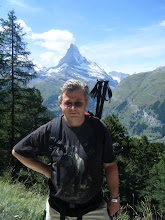My real-life heroine
It was in May 1942 that Sophie Scholl, one of the most enigmatic figures of the German resistance, arrived in Munich from Ulm to study in the university and to join her older brother Hans, who was already studying medicine there. She was almost twenty-one.
Her photos show a small, slender young woman, with unruly dark hair and penetrating dark eyes. She is usually serious – even frowning - but we see her smiling on outdoor excursions in the countryside, which were her favourite pursuit. She was a talented artist and an avid reader. Much of her reading – particularly the writings of St. Augustine – tended to feed her melancholic thoughts and her innate pessimism. She is also remembered as a good listener, with an extraordinary capacity to empathise with the pain and suffering of others, while she inherited a deep religious faith from her mother.
After a flirtation with Nazism in her mid-teens, she had come to share her father’s hatred of the regime. On her arrival in Munich, she soon came across the leaflets which were appearing there under the signature of “The White Rose”, denouncing the Nazi regime and calling for passive resistance. On leafing through Hans’ books, she was excited and terrified to unmask the conspiracy, when she found the same passages from Schiller and others, marked and underlined, that had appeared as quotations in the leaflets. She insisted on joining with Hans and his friends - mostly other medical students, such as Willi Graf, Alexander Schmorrell and Christoph Probst. She did not write any leaflets herself but acted as treasurer to the group and helped with distribution (a very dangerous job).
With the months passing, the strain of the conspiracy began to tell as they spread their activities to other cities. There were some arguments and concerns that Hans, in particular, was becoming increasingly reckless. The secrecy must have been a burden – they could not mention their activities even in letters to closest friends.
News of the German defeat at Stalingrad in early 1943 was the impetus for the group’s sixth leaflet. On the morning of February 18th, Hans and Sophie left surplus copies around the university campus. Apparently on impulse, Sophie threw some leaflets from a top balcony into an inner courtyard. What prompted her to this reckless act? I am inclined to think that it resulted from desperation and exhaustion. However, it led to her and Hans’ arrest.
She almost convinced the Gestapo of her innocence but a search of her and Hans’ flat found evidence incriminating them and Christoph Probst. She confessed, taking the entire blame on herself and Hans in an effort – ultimately futile – to save others. Interrogation the first day lasted seventeen hours and continued for two further days. When her cellmate sympathised with her over the strain, she replied that she found it “interesting”. She refused the offer to save herself by saying that she had been “led on” by her brother.
When she received her indictment on the fourth day, it was for the capital charge of treason. She is said to have experienced a brief moment of fear but to have regained her nerve, convinced that her and Hans’ death would prompt a student revolt. Her copy of the indictment, with the word “freedom” inscribed on the back, still survives. Her State-appointed lawyer almost ran from her cell when she asked him in matter-of-fact tones whether she would be hanged or beheaded.
Her trial - with Hans and Christoph Probst - was conducted on the 22nd of February by Roland Freissler, one of the most contemptible figures of the Nazi regime. She responded to his bullying with dignity. “What we said and wrote are what many people are thinking,” she said, “they just don’t dare say it out loud.” All three were sentenced to death. She and Hans saw their parents later that afternoon. In a poignantly mundane moment, she accepted the sweets they offered, saying that she had missed lunch.
At five, they were led to the guillotine, Sophie first. The guards remarked that they had rarely seen anyone face death so courageously.
Many people were executed during the Nazi years for such courageous actions as speaking out against the regime or harbouring Jews. Sophie Scholl was only one of five members of the White Rose who were executed. Some, such as the historian Ruth Sachs, have complained - understandably - that the focus on her story is unfair to the memory of the others. However, it is inevitable that the execution of a young woman will always draw extra sympathy and shock, although Sophie herself might not have wanted that. In any event, her life has been the subject of numerous books and films, including the beautifully acted "Sophie Scholl, the Final Days", starring Julia Jentsch.
Perhaps we can best understand Sophie from her own words. “Life is always on the edge of death;” she once said, “narrow streets lead to the same place as wide avenues, and a little candle burns itself out just like a flaming torch does. I choose my own way to burn.”


0 Comments:
Post a Comment
Subscribe to Post Comments [Atom]
<< Home